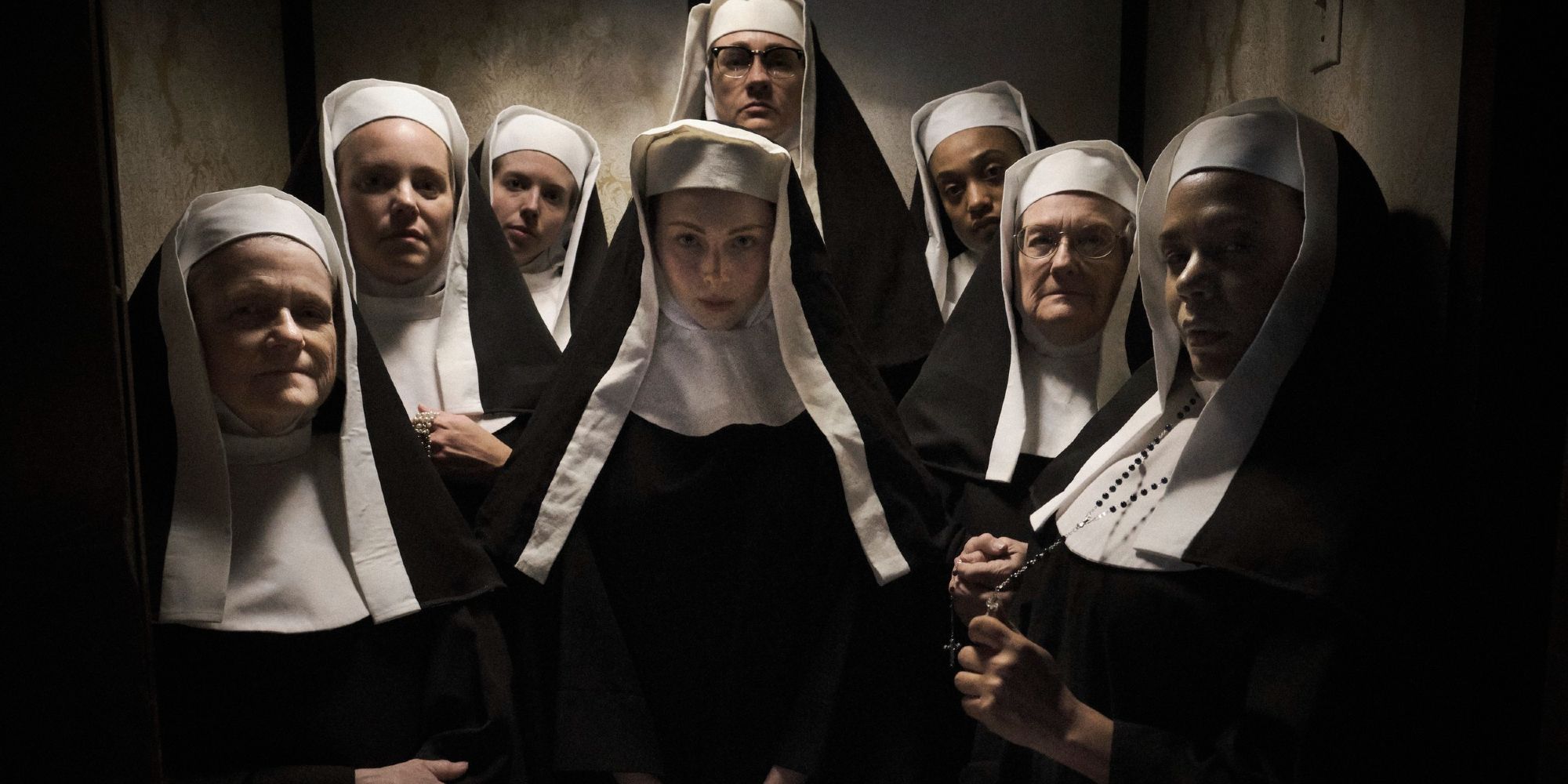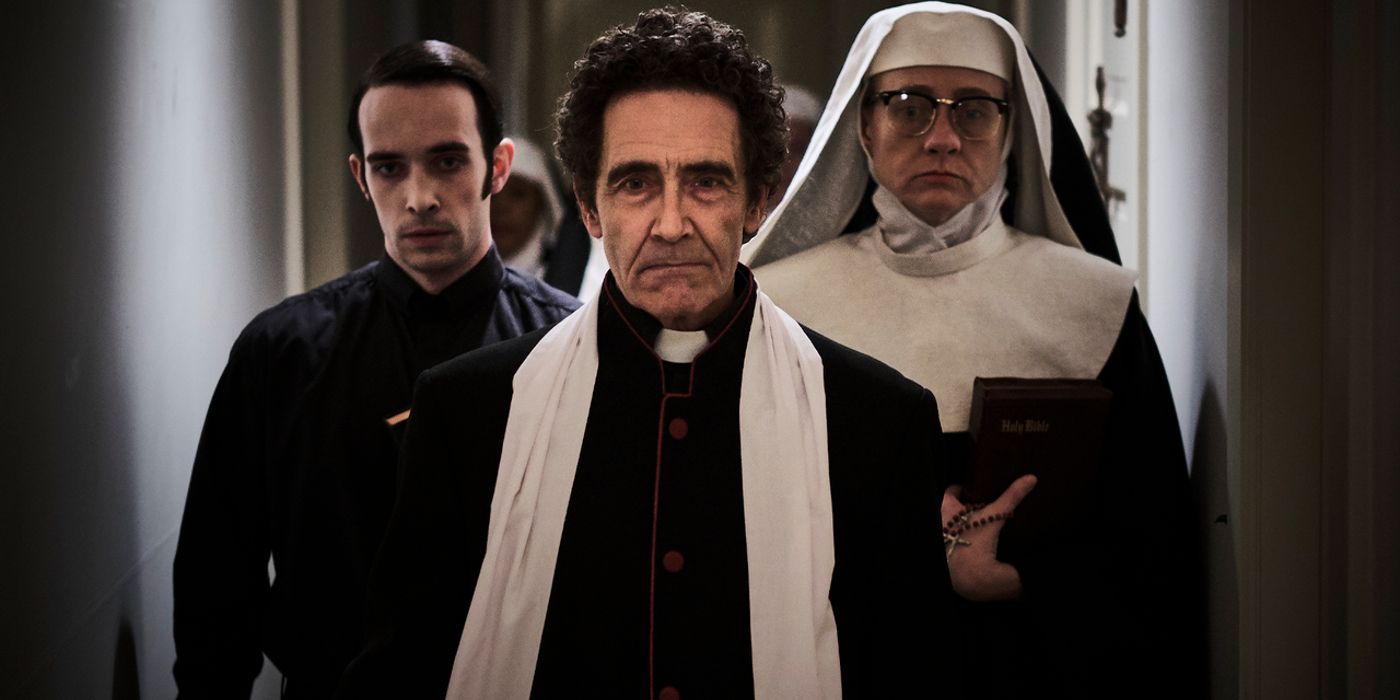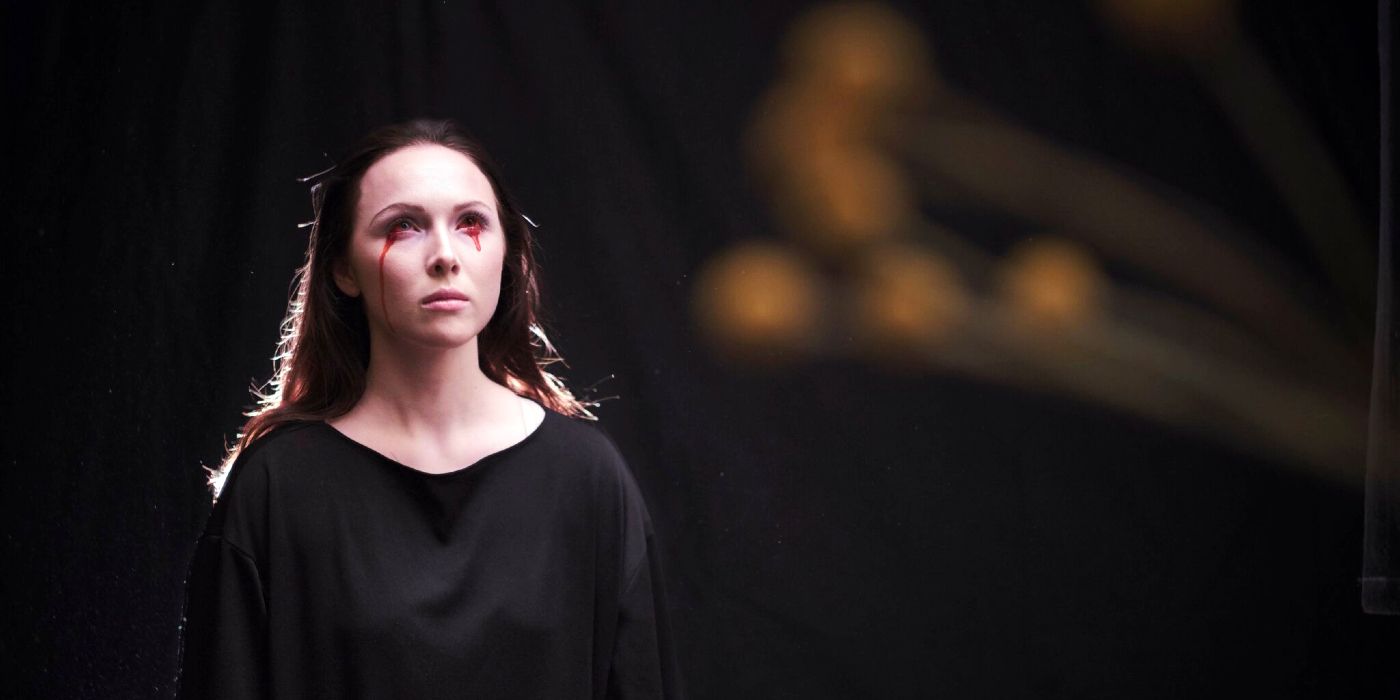The nunsploitation genre can be a tricky one to master, provoking divisive reactions because of the treatment of the material in question. Such is the case for Ken Russell’s controversial The Devils and Paul Verhoeven’s latest, Benedetta. Mickey Reece’s Agnes is a rather baffling watch as it attempts to mesh the aspects of demonic possession with a character drama about religious doubt, which does not work well all the time. Unpredictability is Agnes' greatest strength; its genre-hybridity lends a mixed bag of emotions, ultimately emerging as a raw tale about loss.
The leaders of the diocese assign disgraced Father Donaghue (Ben Hall) the role of priest-cum-exorcist, who is asked to be accompanied by recent seminary graduate Benjamin (Jake Horowitz). While this decision is a deliberate ploy by the church to doom Donaghue, considering he has a history of molesting children, Donaghue is presented as a man forever ready to share his cynical wisdom with Benjamin, much to the latter’s veiled disgust. Reece, by no means, intends Agnes to be a thoroughly serious movie, as there are deliberate instances crafted to induce laughter, such as when Sister Honey fawns over how attractive Benjamin is, and the near-comical way in which a possessed Agnes bites Father Donaghue’s nose off. After the failed exorcism, the excommunicated, celebrity exorcist Father Black (Chris Browning) is called upon, which leads to a series of moments that are both flat-out ridiculous and scary in an extremely lukewarm manner.
Audiences are introduced to the string of unpredictability in Agnes pretty early on as the expected, introductory shots are subverted from the get-go. A group of nuns get together at mass, only to be disrupted by a volatile Sister Agnes (Hayley McFarland), who spews profanities at her fellow sisters, hurling communion cake at their shocked faces, levitating tableware, and shooting them across the room. The tone is neither too serious nor too comical, making audiences second-guess what kind of movie they’re in for. The central premise is that of a demonic possession inside a convent and the repercussions that follow an unsuccessful exorcism ritual.
Contrary to expectations, the titular Agnes is not the axis of the film at all — rather, it is her friend, Sister Mary (Molly Quinn), who the genre-hybrid offering follows faithfully after the first half. Having been close to Agnes and familiar with acute loss, Mary struggles with her faith, leaving the convent after the disastrous and traumatic incident, trying to make it on her own in the harsh, practical world. The tongue-in-cheek, pastiche-y aura of the first half slowly starts to fall apart, as Mary attempts to fill the void left inside her, juggling minimum-wage jobs with confronting and making peace with the past, all the while looking towards a bleak future. An unsettling aura grips Mary’s tale, and Quinn belts out a remarkable performance, emoting the various stages of her grief in an arresting manner.
While Agnes suffers from a lack of cohesion and attempts to elicit varied emotions all at once, it manages to engross, startling with its freeform narrative unveiling. The ending of Agnes might feel abrupt or unsatisfactory for some. Perhaps that’s deliberate, especially given that life has no easy or comfortable answers and it is difficult to be true to oneself amid acute loss and certainty, with the quest for knowing God being drenched in startling nothingness. Reece allows his final moments to bathe in the halo of genuine sincerity, bringing a tender close to an eventful, surprising ride.
Agnes released in theaters and is available on VOD December 10, 2021. The film is 93 minutes long and remains unrated as of now.



